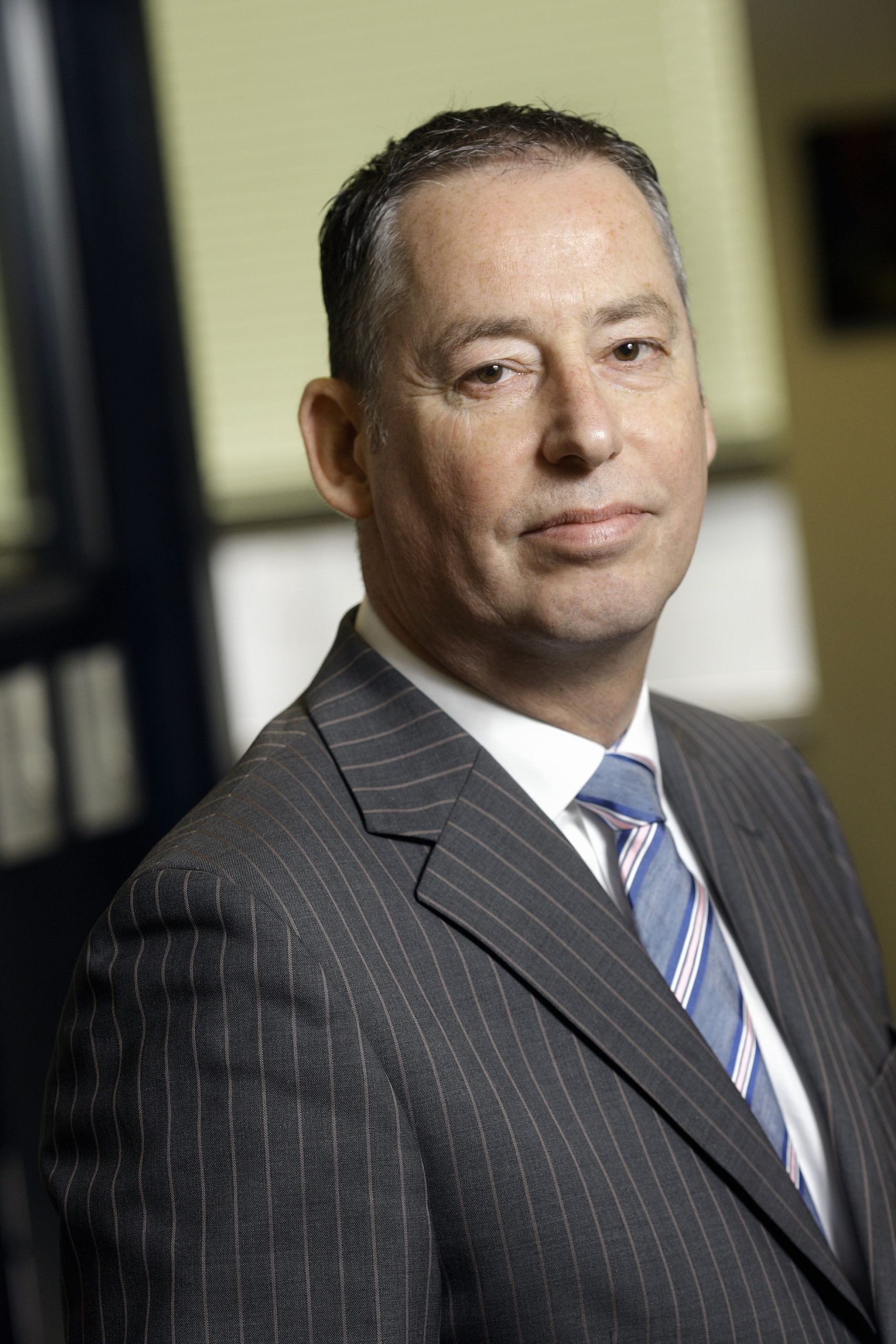The closing of the preliminary registration of students from outside the European Union for the Computer Science and Engineering bachelor programme one-off measure, says Executive Board chairman, Tim van der Hagen. In order to steer internationalisation in the right direction, the Dutch government must fix quotas, he says. A conversation about the boundaries of internationalisation, English and Dutch.
“We hebben de neiging om steeds meer werk naar ons toe te trekken.” (Foto: Sam Rentmeester)
Why did TU Delft opt to close the preliminary registration of students from outside the EU for the Computer Science and Engineering bachelor programme?
“Students from outside the EU have to pay much higher tuition fees than Dutch and European students. I don’t think it is right to ask them to do this if our programme is not in order. The same goes for Dutch and other European students, of course. That would have been the case if we had not done anything. We can only handle a 75 percent growth next academic year if we pull out all of the stops. Every programme has a certain capacity. It was a one-off decision. We haven’t seen this large an influx of students anywhere else. It is very unfortunate for the students we now have to disappoint, and we will help them find an alternative. Parallel to this, we are calling on universities and industry for help with extra teachers and facilities. We will also be using additional digital learning resources.”
Dean John Schmitz of the Faculty of Electrical Engineering, Mathematics and Computer Science says that the University simply cannot train the whole world. Should there be quotas for international students in Delft?
“Currently, only four of Delft’s sixteen bachelor’s programmes are taught in English. This is done for good reasons. They prepare students for work in an international environment. We also believe that the course’s quality is raised by being taught in English.
But it is true, we now need other instruments than a numerus fixus. With a fixus you cannot select on nationality. After all, the law says: everyone is equal. So now, we can only select on quality. We do not think that Dutch students perform any better than other students, but we do have a task to train Dutch students. “
What alternative to a fixus is there?
“The best thing would be to determine in advance how many Dutch students should be admitted to a programme. After that, we could supplement that number with students from abroad. We could define three cohorts per programme: Dutch, other Europeans and from outside the EU. Distinguishing between these three categories of students seems the best model to me.”
‘Dutch is truly important’
Where do the boundaries of internationalisation lie?
“I would say that the proportion of Dutch students in bachelor’s programmes shouldn’t be less than fifty percent. Thirty-five percent could come from other EU countries and fifteen percent from outside the EU. But, as I said, we need the flexibility to vary this according to each programme. And it needs more discussion.”
And politics must come through.
“The Computer Science and Engineering incident shows that the system is not working and will also negatively affect Dutch students. But should we go back and make it a Dutch language programme again? I do not think so. This is an international programme. That is why the government has to step up now. We have told the Ministry that we need policy and that we would like to think it through with them.”
New policies take time to be designed. What should be done with Computer Science and Engineering (CSE) in the next academic year?
“There is a possibility that we set a fixus for that year.”
CSE will remain in English. What is the future of the twelve Dutch-language bachelor programmes?
“That is up to the departments and the Faculty Student Councils. In a programme such as aerospace engineering, it is very clear that English is preferable because it is a unique programme in Europe. But English is not an obvious choice for a programme like physics because there are many similar programmes out there.”
TU Eindhoven will switch to English as the official language. What about TU Delft?
“I am not in favour of English as the official language. We are a Dutch, a Delft, university. I think it’s a good thing for both students and staff from both the Netherlands and abroad, to come into contact with the Dutch language. Many of our international employees want to learn Dutch.”
I sometimes meet Dutch students who prefer talking about their specialisms in English and who use many English words when speaking Dutch. It seems they don’t need Dutch anymore.
“Dutch is truly important. It is part of our educational task to teach students Dutch culture and language skills. It’s also important because students and staff should have a good relationship with the city of Delft. As a university, we want to have an ‘impact on society’. We should be able to explain to a general public what it is that we do at this university.”
Do you want to respond to this article? Please e-mail us: delta@tudelft.nl
Student’s council: ‘Quota may restrict Dutch students’
Do you have a question or comment about this article?
s.m.bonger@tudelft.nl


Comments are closed.